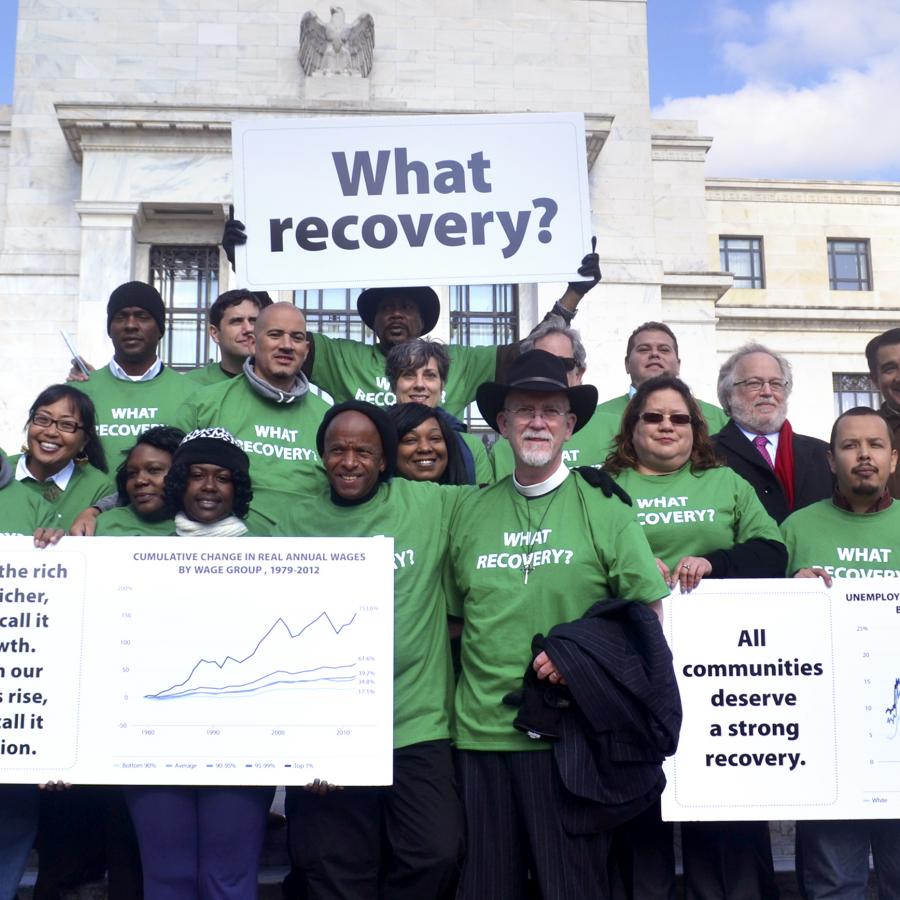Automation risk: All workers should enjoy economic security as technology changes the way work is done.
Insights & Analyses
- Nationwide, 51 percent of job tasks across all industries can be automated. This means that 78.5 million jobs are at risk of being automated.
-
The industries with the greatest vulnerability to automation include accommodation and food services, administrative and waste management services, real estate, retail trade, and transportation and warehousing. More than 60 percent of job tasks in these industries can be automated and approximately 31 million jobs are likely to be impacted.
-
Latinx immigrant workers face the highest level of automation risk at 66 percent. Comparatively, white immigrant workers face an average automation risk of 43 percent.
-
Jobs requiring no more than a high school diploma are most vulnerable to automation, with an average risk of 80 percent. This rate drops to 20 percent among jobs requiring a bachelor’s degree.
Drivers of Inequity
Major technological advancements throughout history have altered the way work gets done, shaping markets, occupations, and industries by making certain jobs obsolete, changing and expanding others, and creating entirely new roles across industries and fields. However, not all workers and occupations are impacted equally. Historical practices, such as racial segregation and policies that banned women and people of color from accessing education and higher-paid professions, and ongoing factors like biased hiring practices, inadequate childcare support, and disparities in wealth have forced historically marginalized people into occupations that are undervalued and vulnerable to automation and computerization. Without strong policies to protect the interests of workers, the tremendous wealth generated by technological innovations has been inequitably concentrated, exacerbating racial and economic inequalities.
Strategies
Grow an equitable economy: Policies to reach full employment for all
-
Invest in robust, disaggregated data collection and reporting systems and utilize granular insights on differential outcomes to drive systems change.
-
Grow new good jobs by making smart investments in infrastructure projects, supporting economic development strategies to grow high-opportunity industries, and helping entrepreneurs of color start and scale up their businesses.
-
Reduce employment barriers for people with records by "banning the box" — eliminating questions about conviction history on job applications (for private as well as public employers).
-
Connect unemployed and underemployed workers to the jobs created by new development through targeted local hiring, community workforce agreements, and community benefits agreements.
-
Invest a portion of infrastructure investments in job training.
-
Implement sector-focused workforce training and placement programs and apprenticeships that create pathways to good jobs for workers with barriers to employment.
-
Invest in innovative training and credentialing models that democratize the economic benefits of a bachelor’s degree to a wider swath of the workforce, such as paid-on-the-job training and portable, stackable credentials and microcredentials to facilitate upward career transitions.
-
Enact strong language access policies requiring interpretation and translation services for English-language learners and facilitate naturalization among green card holders.
-
At the federal level, institute a federal jobs guarantee, dedicate 1 percent of infrastructure investments to a fund for inclusive job and contracting supports, set aside a share of public contracts for businesses owned by people of color to mirror area demographics, reform the Community Reinvestment Act to expand access to fair financial products and services for entrepreneurs of color, and ensure that releases from federal prison receive essential identification documents to support job attainment.
Strategy in Action
Per Scholas is a national organization that works to advance economic equity by providing no-cost training for technology careers. Operating in more than 20 metropolitan areas across the nation, Per Scholas partners with tech employers, policymakers, and community-based organizations to create tech career pathways for program participants and support increased diversity in the tech sector. In addition to focusing on hands-on technical skills development, its curriculum includes professional skills learning to prepare job seekers for success in the labor market. In 2023, 87 percent of the organization’s program participants were people of color, and 43 percent were women. And in that year, over 2,600 graduates went on to secure jobs with an average annual salary of $48,000. To date, more than 25,000 people have graduated from Per Scholas’ training program. Read more.
Photo: Per Scholas

Resources
- Reports: Race and the Work of the Future: Advancing Workforce Equity in the United States; How Covid-19 Is Affecting Black and Latino Families’ Employment and Financial Well-Being; 10 Principles for a Federal Job Guarantee; Exploring Targeted Hire; Despite Continued Job Growth, Long-Term Unemployment Persists; Hiring Bias Black And Latino People Face Hasn't Improved In 25 Years
- Data: Opportunity Insights Economic Tracker (Low-Income Employment); Metro Monitor; State of Working America; Understanding Long-Term Employment



